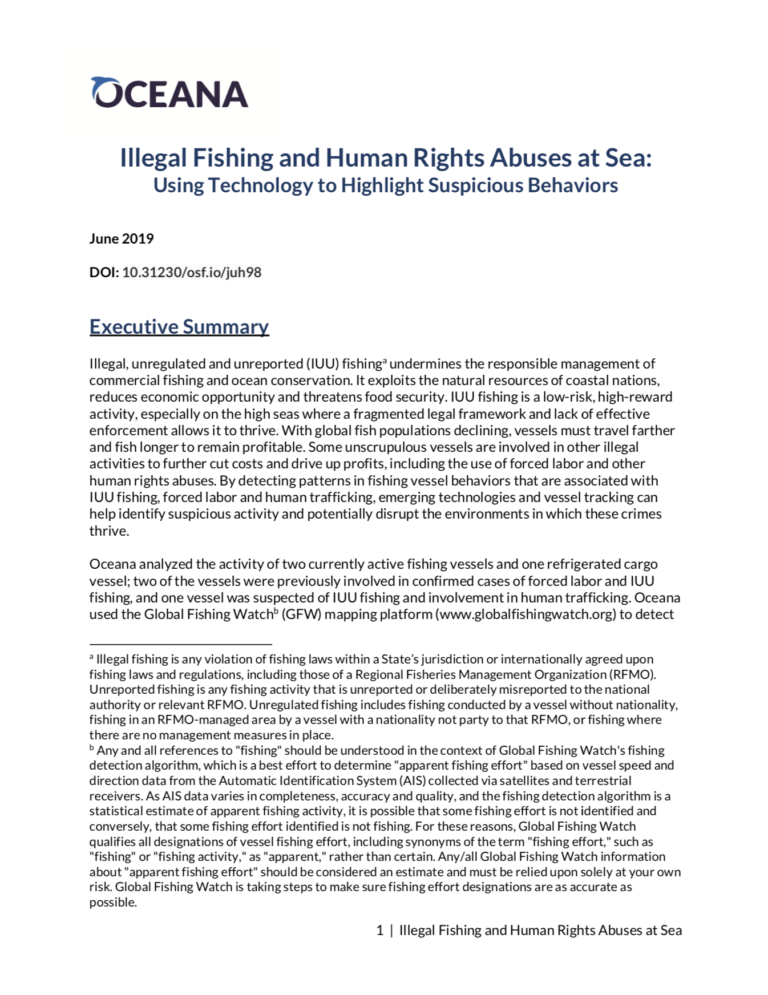Illegal, unregulated and unreported (IUU) fishing undermines the responsible management of commercial fishing and ocean conservation. It exploits the natural resources of coastal nations, reduces economic opportunity and threatens food security. IUU fishing is a low-risk, high-reward activity, especially on the high seas where a fragmented legal framework and lack of effective enforcement allows it to thrive. With global fish populations declining, vessels must travel farther and fish longer to remain profitable. Some unscrupulous vessels are involved in other illegal activities to further cut costs and drive up profits, including the use of forced labour and other human rights abuses. By detecting patterns in fishing vessel behaviors that are associated with IUU fishing, forced labour and human trafficking, emerging technologies and vessel tracking can help identify suspicious activity and potentially disrupt the environments in which these crimes thrive.
Oceana analyzed the activity of two currently active fishing vessels and one refrigerated cargo vessel; two of the vessels were previously involved in confirmed cases of forced labour and IUU fishing, and one vessel was suspected of IUU fishing and involvement in human trafficking.

